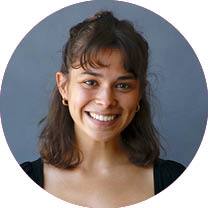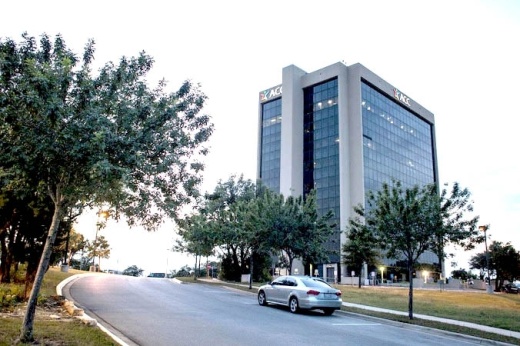The bond will create space for high-demand programs through physical expansions to all ACC campuses, ACC board Chair Nan McRaven said.
McRaven attributed the passing of the bond to the college’s reputation for affordable education and its wide reach in the area. The average yearly tuition of 30 credit hours for a full-time student is $2,550 for the 2022-23 year—the same rate ACC has offered for nine years. ACC serves the largest number of students among Austin’s higher education institutions and sees about 80% of graduates join the Central Texas workforce, ACC Communications Specialist Sydney Pruitt said.
“[The community] know[s] that we are really the No. 1 provider of the workforce,” McRaven said.
Due to rising property values, the multimillion-dollar bond was able to pass without ACC increasing its tax rate. At its existing tax rate—$0.0987 per $100 valuation—a taxpayer with a home worth $500,000 would pay $5 more per year for the first five years.
Expectations of the bond
ACC’s most recent bond, passed in 2014, focused on renovations and construction. The 2022 bond will address workforce demand and fulfill the 2021 Master Facilities Plan, which looks at program and campus growth.
The South Austin campus, which is on Stassney Lane, and the Riverside campus, which is on Grove Boulevard, are getting expansions for student services, and the Hays campus is getting expansions for health sciences, including a full-fledged nursing program that will double its capacity for students, McRaven said.
Beyond the local impact to South Austin, the bond will expand continuing education at Northridge; computer science expansions at Cypress Creek; advanced manufacturing and skilled trades at San Gabriel; computer science and cyber security at Rio Grande; advanced manufacturing, entrepreneurship and cyber security at Highland; and health care facilities and student services at Eastview.
The bond will also create two more ACC campuses. The first is the Pinnacle Campus in Oak Hill that closed in May 2018 and will be reopened for general education programs, Pruitt said. ACC will not reopen the original Pinnacle building due to high costs but will build a separate facility next door at the 55-acre site off Hwy. 290. Pruitt said there are no plans for the vacated building at this time.
The second is a campus solely dedicated to advanced manufacturing—manufacturing that incorporates new technologies, such as 3D printing, during production, Pruitt said. The campus will be built on a 124-acre plot of land in southeast Travis County near the airport that ACC acquired from its 2014 bond.
The ACC board will have a workshop in January to discuss how the bond should be rolled out. However, McRaven said building the new southeast Travis County and Pinnacle facilities as well as expanding the Hays campus are the top priorities.Impact on workforce
Between the new southeast Travis County campus and four other expansions throughout ACC, advanced manufacturing is receiving the biggest chunk of funding from the bond.
McRaven said this decision to focus on advanced manufacturing was made in response to the growing demand Tesla, Samsung Austin Semiconductor and other companies that have recently broken ground in Austin have created for workers.
Since January, Texas has seen a 9% increase in the demand for advanced manufacturing jobs, while Austin alone has seen a 20% increase, said Bryan Daniel, chair of the Texas Workforce Commission, a government agency that provides employment resources to residents.
Health care and IT have seen similar growth in Austin. Lightcast Job Posting Analytics, a labor market analytics company, analyzed job postings in ACC’s six county areas that ACC graduates could feasibly obtain after graduation. The data found from January to June, there were over 12,000 postings for jobs in health care and almost 25,000 information technologies jobs, according to Lightcast Job Posting Analytics, a labor market analytics company that looked at individuals with jobs aligned with ACC programs.
“What we’re really doing is positioning a very large cohort of people to take advantage of jobs that are probably going to pay significantly above our median wage for the area. And there’s really not a downside for that,” Daniel said.
The added space for the Hays campus nursing program will also impact the workforce, said Ashley King, director of health care partnerships at Workforce Solutions Capital Area.
In 2022, there have been 11,000 job postings for nursing positions in the Austin area, but only 950 graduates from Austin colleges were able to fill those positions, King said.
“That’s the environment we are in right now. We are short on talent. We have a lot of new jobs and a lot of new industries, and we are thankful to only have a 2.8% unemployment rate,” she said.
ACC works closely with companies, such as Tesla, to help students receive gainful employment after graduation, McRaven said, adding the average ACC alumnus increases their income between 45%-65% over a five-year period after graduation.
Entry-level salaries for advanced manufacturing jobs that could be obtained by an ACC graduate range from $32,000-$47,000 annually. Positions in health care range from $26,000-$51,000, and IT jobs—such as those at Apple and Amazon—range from $33,000-$66,000, according to Lightcast Job Posting Analytics.
“We’re all pushing for our students to get trained or retrained in these high-skilled job areas because there are lots of job postings, lots of openings, and we don’t have a skilled labor force to fill those openings,” McRaven said.
ACC’s focus on students
While the majority of ACC’s bond dollars are going toward campus expansions for program development, about 5% of the money—over $38 million—will fund student services.
ACC will be implementing wellness centers with mental health services as well as ramping up its “HyFlex,” or hybrid flexible, classrooms that can accommodate in-person and virtual learners in the same class session, ACC Chancellor Richard Rhodes said. ACC is also planning on creating child care centers that have drop-off or all-day options for student-parents at the Riverside, South Austin, Eastview and Northridge campuses.
Rhodes said the need for safe, affordable child care stems from the COVID-19 pandemic, when many child care centers in Central Texas closed, about 8% of which still have not reopened, according to the Texas Workforce Commission.
The child care services will come at an extra cost to students, though Rhodes said ACC’s goal is for it to be affordable.
"Students have to feel a sense of belonging, and you do that by providing wraparound services," he said.





